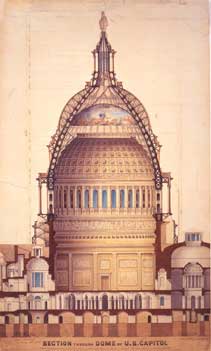Do You Want the Good News First or the Bad News?
 Is the glass half-empty or half-full? There were mixed results in Congress this week for political progressives. I'll start with the good news: the senate rebuffed a discriminatory Constitutional amendment to prohibit same-sex marriage. Of course, this victory is largely a moot point, since most states outlaw legal recognition of such partnerships anyway and even in the political and legal discourse that regulates their conduct, gays and lesbians become the unmentionable rhetorical Other.
Is the glass half-empty or half-full? There were mixed results in Congress this week for political progressives. I'll start with the good news: the senate rebuffed a discriminatory Constitutional amendment to prohibit same-sex marriage. Of course, this victory is largely a moot point, since most states outlaw legal recognition of such partnerships anyway and even in the political and legal discourse that regulates their conduct, gays and lesbians become the unmentionable rhetorical Other.Those who might be prevented from marrying in the face-to-face world governed by statutory law might seek out alternative digital public spheres in which to wed. Yet there is also controversy about allowing gay matrimony in virtual environments. While some videogames include the celebration of gay marriage among their social rituals, and activists are encouraged by game-makers' sympathetic responses to the problem of online homophobic discrimination more generally, as the story of the Lambda letter to the makers of World of Warcraft demonstrates, nonetheless, game companies still reflect the sexual conservatism of the larger society, which they simulate and on which they depend for revenue. For example, the Sims 2 disabled the opportunity to choose a sexual preference other than a default setting. Furthermore, Yes Men Andy Bichlbaum was famously fired for inserting a gay "easter egg" in the code of SimCopter.
Since June is Entertainment and Ratings Month, it's worth remembering that watchdog organizations often enforce heteronormativity more stringently than community standards about obscenity.
The bad news from the legislative branch, of course, is that a Network Neutrality rider, introduced by Edward Markey, the blogging Congressman, was also defeated by the House this week. Similar and yet competing web-based rhetorical appeals may have confused those following the issue. As a specialist in digital rhetoric, my concern is that this will have a chilling effect on both communication technology and communication more generally, because multi-megabyte video webcasts made by average citizens might not be viewable if connectivity becomes an issue. Although it has been accused of being a form of vanity publication, the relatively low production costs of YouTube presentation allow D.I.Y. expert amateurs to share their results with the public when they actually test out their personal thought experiments.
As a case study, consider Adam Scott, Canadian softball-playing self-described "angry young man," who decided to forego many of the hassles of bachelor living -- such as shopping, food preparation, cooking, and kitchen cleaning -- by trying to live on nothing but inexpensive bulk monkey chow for a week. What is interesting is that Scott's sophomoric stunt ultimately ended up producing a serious meditation that included thoughts about addiction, dependency, community, public health, and world hunger. It might not have as much socially redeeming value as Barbara Ehrenreich's exposé on minimum wage work in Nickel and Dimed, but it does have a similar investigative spirit. Without the guarantee of Network Neutrality, Scott's surprisingly thought-provoking YouTube video might become eventually inaccessible.
Perhaps it is because I am supervising the research projects of 1,300+ lower division writing students this month that I am concerned not only about how easily future young people will be able to access the resources of the Internet but also how readily they will be able to display and share their findings.
Labels: congressional legislation, game politics, network neutrality

1 Comments:
I like this bit from the "gay Easter egg" story:
Servin said there was nothing overtly sexual or obscene about his
added characters. "These boys in swim trunks just walk around -- very
rarely, I might add -- except on certain days of the year." Those dates
include Friday the 13th and Servin's birthday, Sept. 30, as well as Aug.
22, his ex-boyfriend's birthday. "On those days, all kinds of things
happen. There will be boys kissing, there will be a greater number of
bimbos, there will be Elvis impersonators. It's really hilarious," he
said.
Post a Comment
<< Home